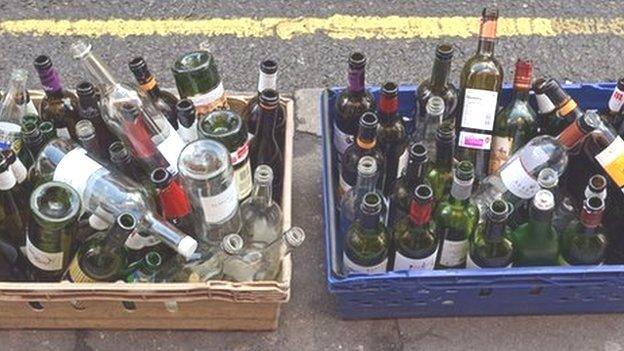One in seven tonnes of recycling rejected in some Welsh council areas
- Published
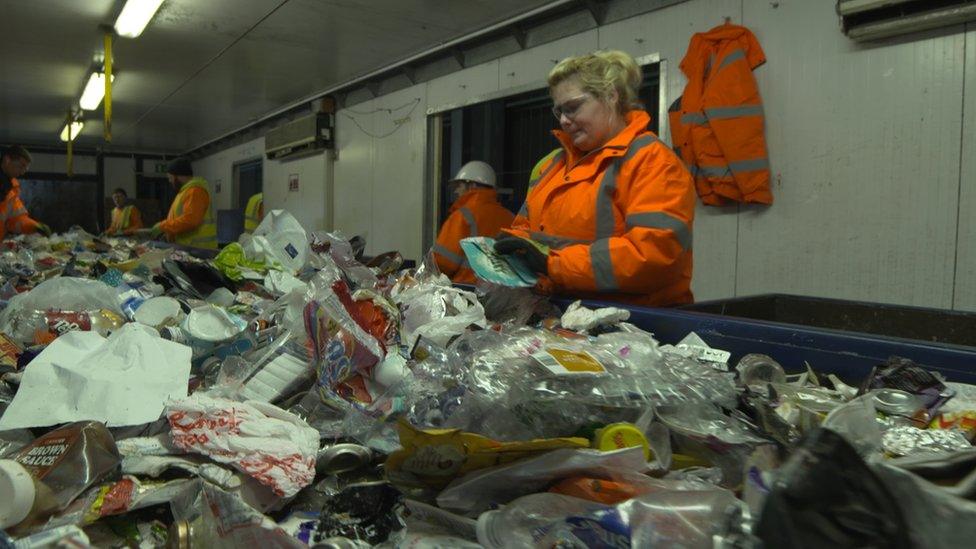
One in every seven tonnes of recycling in some Welsh council areas is rejected and ends up in incinerators or landfill, figures show.
Natural Resources Wales statistics reveal the way almost half of Welsh councils collect recycling means it can get contaminated and cannot be sold on.
The Welsh Government urged those councils to adopt a stricter method of collection.
It wants to see 64% of municipal rubbish recycled by 2020.
Wales currently leads the rest of the UK with more than 60% of rubbish recycled, double the figure a decade ago.
But BBC Wales' Week In Week Out programme looked at how local authorities are under pressure to meet recycling targets.
Some councils are threatening fines for people who do not recycle properly and others are changing the way they collect household rubbish.

Week In Week Out followed two families in Betws Yn Rhos, in Conwy county - where the council has reduced black bin collections to once every four weeks - to see how they are coping
Roberts family struggle with four-weekly bin collection
Macpherson family copes with Conwy four-weekly bin collection

Three councils, including Newport, face the possibility of Welsh Government fines for not reaching last year's target of a 58% recycling rate.
But while Newport is underperforming on its recycling rate, the council said its approach is actually highly effective because it is able to sell 99.97% of everything it collects.
Newport uses a method called "kerbside sort" which asks householders to separate out their rubbish before it is collected.
But many of the councils that have higher recycling rates ask people to put their recycling in one bag for it to be sorted after collection - this results in more of the material being rejected.
The Welsh Government is urging all councils to adopt "kerbside sort" rather than "co-mingling" in one bag.
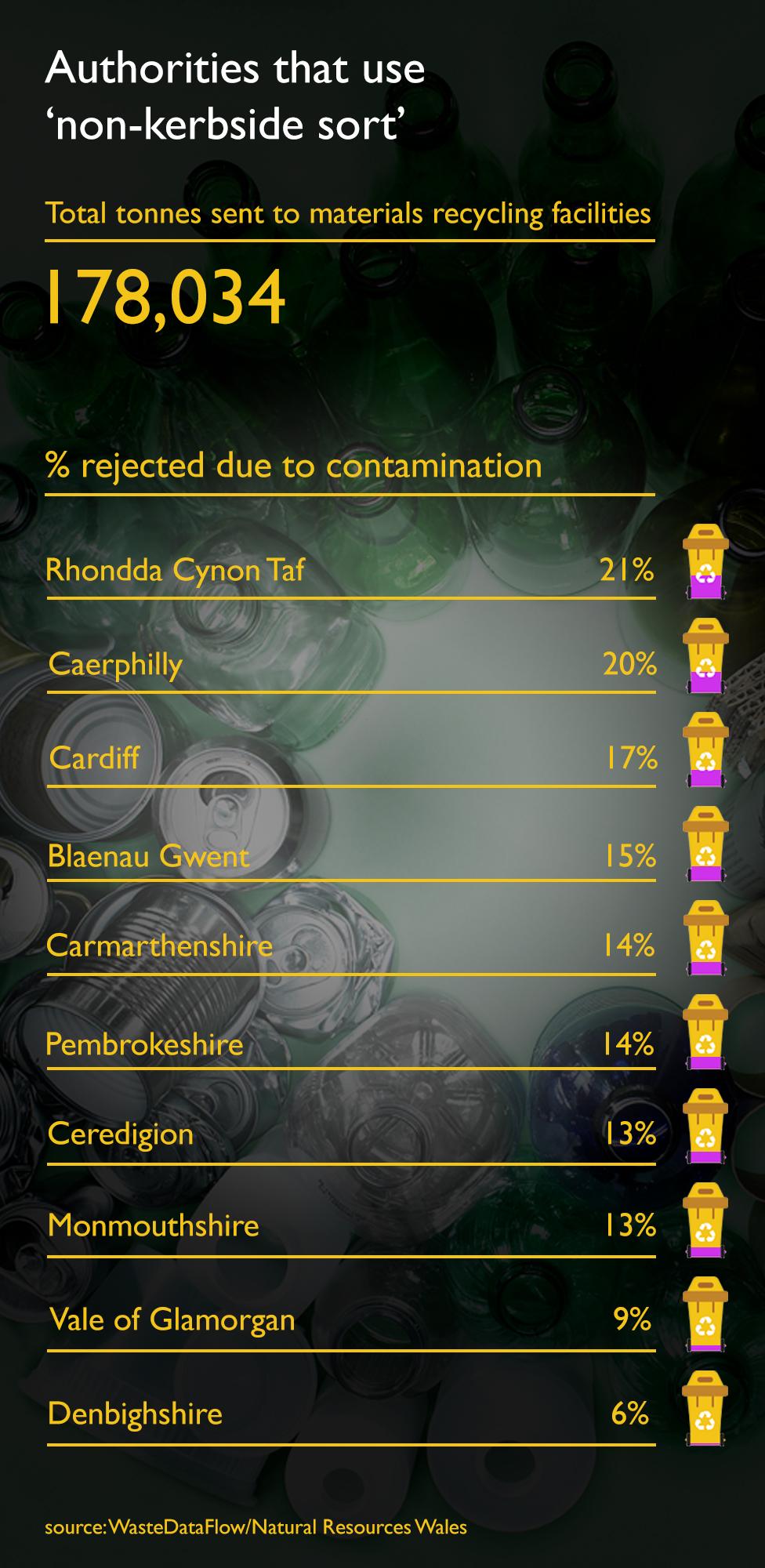
A spokesman said: "We published the Collections Blueprint, external in 2011 which identifies kerbside sort as the most cost-effective type of service that results in the least contamination.
"An independent review… confirmed that the blueprint remains the most cost-effective and most sustainable solution for recycling."
Junior Roberts is shown how he could recycle more rubbish
But Rachel Jowitt, who speaks for the Welsh Local Government Association on waste, said councils should adopt whichever method works best for them.
She said: "There are pros and cons with both systems. All the studies prove that co-mingling collects more recycling because of greater public buy-in, whereas kerbside sort produces a better quality product with less rejection."
Week In Week Out's Keeping a Lid On It can be seen on BBC One Wales at 22:35 on Tuesday 22 November.
- Published28 October 2016
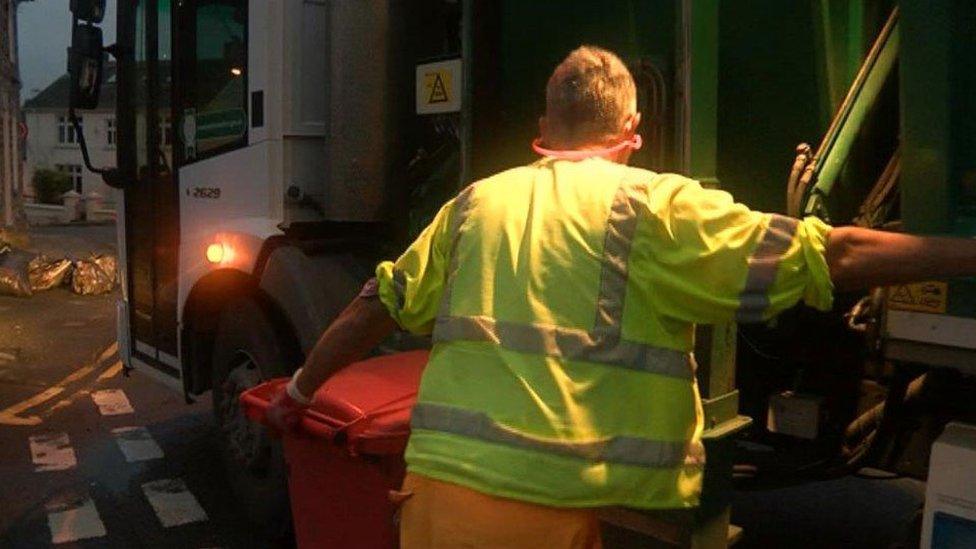
- Published24 August 2016
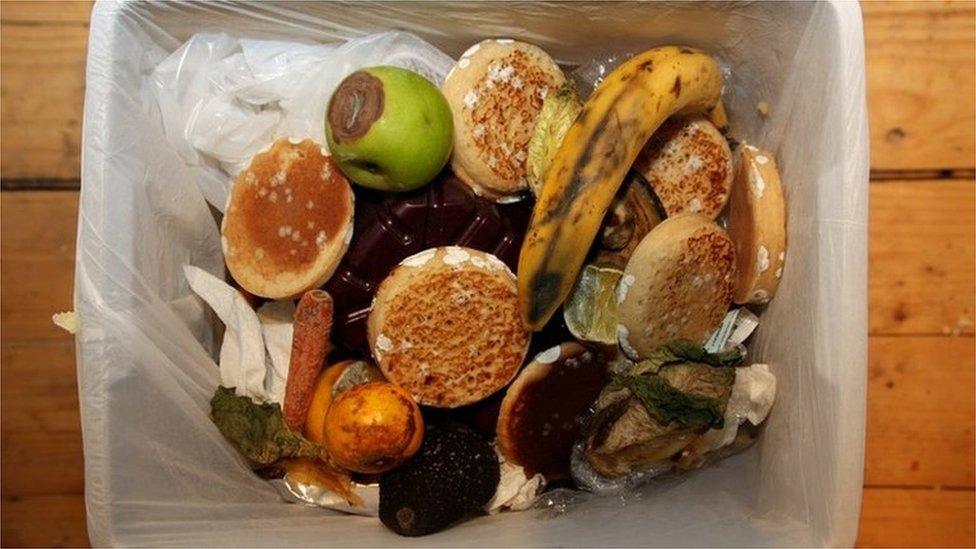
- Published21 January 2016
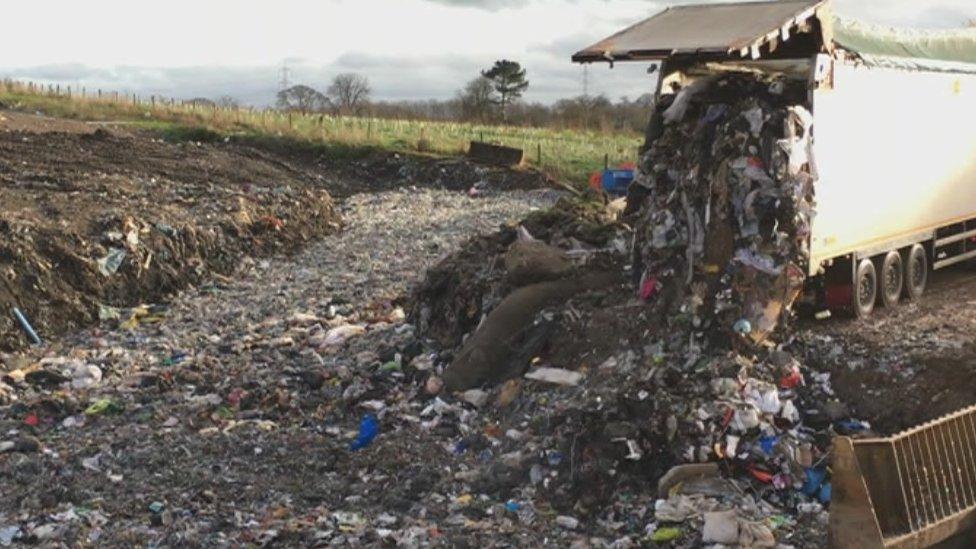
- Published20 August 2015
